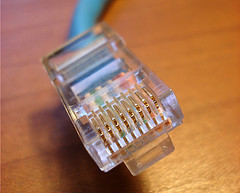Malware continues to grow in both complexity and subtlety, and you’ve got to keep a constant vigil against viruses & spyware to protect your computer and tech gadgets. Virus and spyware detection tools (like our own StopSign Internet Security software) are great, but real computer security starts with you. Knowing what malware comes to us as (i.e. in what form it lands on our computer) is a key to recognizing what to click and what to avoid.
Pictures and software downloads have long been associated with malware. This isn’t to say that all pics and downloads are bad, but it’s best to keep an eye on them before you open them up. Especially if you receive them out of the blue or from an unknown source. Listed below are some different PC security tactics you can use when it comes to attempting to weed out any bad software or files from hopping onto your computer. None of them are foolproof, but they can be a big help in getting rid of potential problems.
- The Browser Shuffle:
If you maintain 2 or more different browsers (Internet Explorer and Firefox, for example), you can keep one of them locked down for secure usage (no cookies, no JavaScript, no proxies, etc.) and the other for general surfing. If you find yourself needing to browse to new or unfamiliar sites, just switch over to your secured browser. With fewer parts for potential malware to play with, you’ll help yourself by decreasing your chances of getting a computer infection.
- Cache/Trash Control:
I always recommend checking the option (if available) to automatically clear our your browser cache when closing the browser. This makes it a easy way to keep any potential snags away from the browser. It also clears up room for newer bits and pieces of the pages you surf.
- Dropbox Downloads:
Using a service like Dropbox will help keep your Inbox cleaned up, and it will also limit who you serve your files to, or who you are served files from. For example, if you know your friend Billy is going to send you a file, have him use Dropbox to keep it clean. This way you’ll know that any new files from Billy in your Inbox might be suspect. (Or it could just mean Billy forgot to use Dropbox)
- Just Say No:
Maybe you don’t want to download Billy’s latest funny picture or whatever he’s sending you today. Dropbox or no, just don’t click it. The less you bring into your computer, the less likely you’ll be hit by anything nasty like malware. We’ve all got a friend like Billy who likes to send us lots of junk, don’t we? 🙂
It’s all about being smart about who’s files you choose to open up and/or download, as well as what you keep around. Steering clear of unexpected files is a big first step, but there are plenty of ways to still get the ones you want.
If you're looking for great anti-virus software that won't break the bank, try StopSign. You don't pay extra for tech support for difficult malware, and our web protection software just works. Download & install StopSign to find out why our members choose us over the other options.








Recent Blog Comments